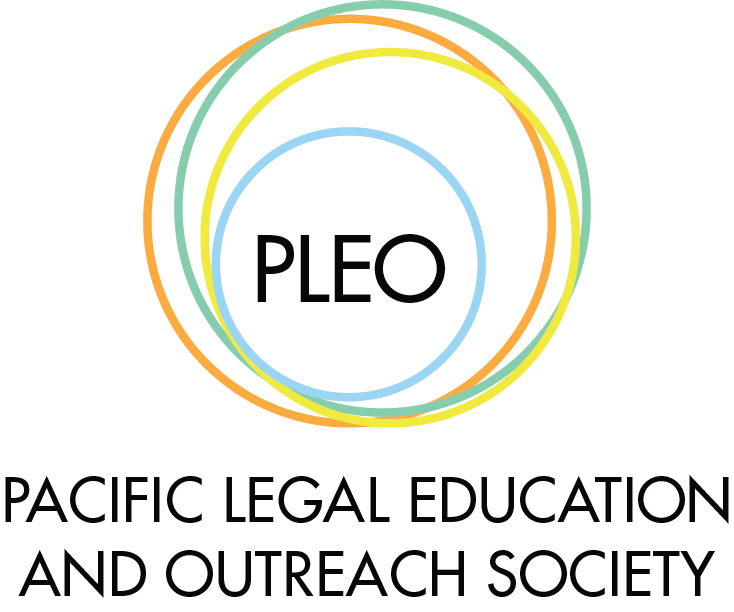Director's Liability in COVID-19: FAQ's
Who this resource is for: Provincially regulated, non-unionized, non-profit director’s in British Columbia
Who made it: © Pacific Legal Education and Outreach Society (PLEO), July 2020.
What are the duties of directors in COVID-19? A director of a society must:
Act honestly and in good faith (without ulterior motives) in the best interests of the society
Act toward the purposes of the society
Exercise the care, diligence, and skill of a reasonable person in the circumstances
Follow the bylaws of the society
Follow the law, including the Societies Act
What does director’s liability mean?
The term ‘liability’ refers to the responsibility of directors and organizations for the consequences of conduct that fails to meet a pre-determined legal standard. Usually, the term ‘consequences’ refers to damage or loss experienced by someone.
What can a director be held liable for?
A director can be held personally liable for:
Failure to fulfill their duties as director
Failure to disclose a conflict of interest
Failure to deduct and remit employee income taxes to the CRA (including CPP and EI)
Failure to pay wages owed to employees
Authorizing the distribution of money or property contrary to the bylaws or the Societies Act
What can a society be held liable for? The society can be held liable for, among other things:
Failure to pay rent
Failure to pay other creditors
Failure to collect and remit taxes such as GST and PST
Why is a director personally liable for some things and not for others?
In Canadian law an incorporated entity such as a society is treated as though it is a separate person from its directors. However, in certain circumstances, the courts and certain statutes may “pierce the corporate veil” and ignore the separate person principle. For example, s. 227 of the Income Tax Act allows the CRA to hold directors personally liable for failure to deduct and remit taxes. Most other creditors do not have the powers of the CRA.
Can contracts or a society’s bylaws reduce or eliminate director liability?
No. Neither a contract nor the society’s bylaws can relieve a director from their duties under the Societies Act nor from liabilities arising from the director’s negligence, default, breach of duty, or breach of trust. In addition, liabilities do not go away if the society is dissolved.
What happens when a director voted for or consented to a resolution based on information that turned out to be incorrect?
In general, a director must ensure the information they act upon is correct. However, a director will not be held liable if they reasonably and in good faith relied on any of the following:
The financial statements of the society
Statements about the society’s financial position by the director or senior manager responsible for the preparation of financial statements
The written report of the society’s auditor
The written report of a person whose profession lends credibility to that statement (e.g. lawyer, accountant, engineer, appraiser)
A statement of fact by another director or a senior manager
Any record, information, or statement the court decides was reasonable grounds for the director’s actions, even if there was forgery, fraud, or inaccuracies.
What are the consequences of being held liable?
Generally, a director who is found personally liable must return whatever money or property is owed.
However, directors should be aware that certain misconduct constitutes a criminal or regulatory offense.
If liability arose from a resolution passed by the directors, each director who voted for or consented to the resolution is held responsible for the entire amount owed. However, if a director pays back more than their share of what is owed, they are entitled to contributions from the other liable directors.
What can directors do to protect themselves from liability?
The best protection is to proactively learn about directors’ duties and to always act honestly in the best interests of the society using the best available information. Directors should not vote for or consent to resolutions when they are unsure about the consequences or legality of that resolution. In addition, s. 66 of the Societies Act permits a society to purchase liability insurance, which can cover directors and/or senior managers of the society.
What does Directors & Officers Liability Insurance cover?
For an answer to this question we provide an excerpt from the CCVO Insurance Toolkit for Volunteers:
Directors and Officers (D&O) Liability Insurance
All nonprofit organizations have a governing body such as a volunteer Board of Directors. As the leaders of the organization, it is common for volunteer Board members to express concerns about their own personal liability for the organization’s operations. D&O coverage typically protects against risks that are not included under your organization’s general liability policy, such as claims arising out of Board decisions or omissions, or out of actions or activities performed directly under the auspices of the Board of Directors. D&O policies are usually issued on a claims-made basis. D&O does not cover bodily injury or property damage as this is covered by your organization’s commercial general liability coverage. For example, if someone slips in the lobby of a building you own, your general liability, not D&O policy, would respond to any claims.
Protecting Board Members in Your Bylaws
By “indemnifying” your Board members in your organization’s bylaws, your organization agrees to pay the costs associated with a claim related to a Director’s service on the Board. While indemnification helps protect Board members, many nonprofits and charities do not have the money in reserve to pay the costs associated with a claim. D&O insurance covers the financial requirements of indemnification.
Do All Organizations Need D&O Insurance?
Your organization’s decision to buy D&O insurance should be based on your level of risk. Most nonprofit D&O claims are employment-related, so the level of exposure is usually low for organizations with few or no employees. Talk to your broker or agent, and your Board about D&O insurance requirements.
D&O RESOURCE LIST
Remember, directors & officers liability insurance is just one of many insurance policies available to your society. Examples of other policies include protection for property damage, physical injury and accidents, cyber and privacy breaches, employment lawsuits, and event insurance.
Liability in light of COVID-19
What should a director do if they are informed an employee has contracted COVID-19?
As an employer, directors have obligations under the Occupational Health and Safety (OHS) regulations to ensure a safe workplace. If a potential hazard has been brought to a director’s attention, then the director must investigate the hazard to ensure the society maintains a safe workplace. Information for employers on responding to COVID-19 in the workplace can be found on the WorkSafeBC website. You can also refer to our Return to Work Letter Template.
If a person contracts COVID-19 on the society’s premises, who is liable?
Liability depends on the circumstances of each case but there is a possibility that the society is named in a lawsuit which it must defend. For example, if a client or member of the public contracts COVID-19 on a society’s premises, there is risk that the society may be named in a lawsuit because the “injury” took place on the society’s premises or because of some alleged negligence on the part of the society or directors that led to the injury. However, if an employee of the society contracts COVID-19, a civil lawsuit may be barred as the claim falls under the workers’ compensation scheme.
Insurance may cover such a claim, depending on the specific terms of the society’s insurance policy. Since the terms and interpretation of insurance policies vary, there is no way of being certain a policy will cover any one claim. However, directors may gain greater certainty by obtaining an insurance coverage opinion by a qualified expert. What does negligence mean? In the most basic sense, negligence is the failure to exercise care in the circumstances. In effect, negligence is carelessness.
Other PLEO Resources for Directors:
Employee Rights & Employer Obligations in COVID-19 (webinar + info sheet)
Still have questions?
Submit an inquiry* to our Ask a Law Student service.
* Our law students can only provide general legal information, not advice about what steps you should take in your specific circumstance. They also cannot provide legal opinions.

